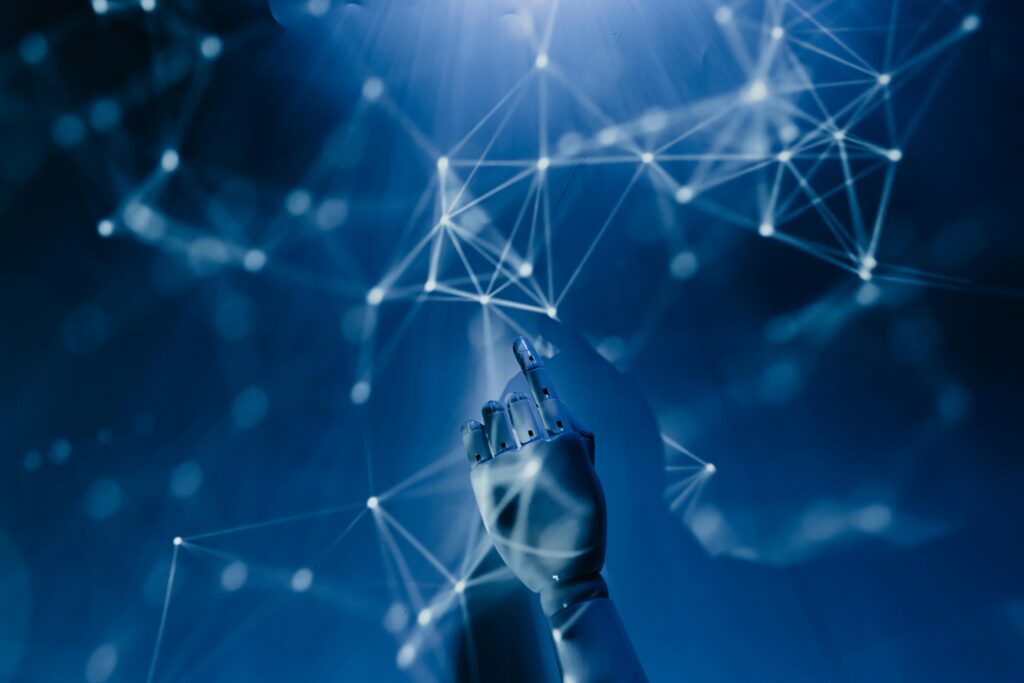
From Threat to Opportunity: How AI is Changing the Job Market
Artificial intelligence (AI) is no longer just a concept from science fiction; it has become an integral part of our everyday lives. From the moment we wake up to the moment we drift off to sleep, AI is silently working behind the scenes, influencing our decisions, shaping our experiences, and even determining our career paths. While the rise of AI has undoubtedly sparked concerns about job displacement and a potential “robot apocalypse,” a closer look reveals a more nuanced reality. AI is not here to steal our jobs; it’s here to transform them.
The AI-Powered Job Market: A Double-Edged Sword
AI is undoubtedly transforming the job market. Automation driven by AI is already replacing humans in certain roles, particularly those involving repetitive tasks or data entry. This has led to fears of mass unemployment and a widening gap between those who can adapt to the new technological landscape and those who are left behind. However, it’s important to remember that technological advancements have always disrupted the job market. The Industrial Revolution, for example, led to the decline of many agricultural jobs, but it also created entirely new industries and opportunities in manufacturing and other sectors.
AI is no different. While it may eliminate some jobs, it also creates new ones. As AI systems become more sophisticated, there will be a growing demand for professionals who can develop, maintain, and manage these systems. This includes roles such as:
- AI engineers: These professionals design, build, and test AI algorithms and systems.
- Machine learning engineers: They specialize in developing and deploying machine learning models.
- Data scientists: They analyze large datasets to extract insights and inform AI development.
- AI ethicists: They ensure that AI systems are developed and used responsibly and ethically.
Moreover, AI can augment human capabilities, allowing us to focus on more complex and creative tasks. For example, AI-powered tools can assist doctors with diagnoses, lawyers with legal research, and teachers with personalized learning plans. This not only improves efficiency and productivity but also enhances the quality of work and the overall job experience.
Adapting to the AI-Powered Future
The key to navigating the AI-powered job market is adaptability. As AI continues to evolve, it’s crucial to develop skills that complement AI rather than compete with it. This includes:
- Developing critical thinking and problem-solving skills: AI can process information and perform tasks quickly, but it still lacks the human ability to think critically, solve complex problems, and make nuanced judgments.
- Cultivating creativity and innovation: AI can automate routine tasks, but it struggles to generate truly original ideas and solutions.
- Mastering emotional intelligence and communication: These skills are essential for building relationships, collaborating with others, and providing empathetic customer service.
- Embracing lifelong learning: The job market is constantly changing, and it’s important to stay ahead of the curve by continuously learning new skills and adapting to new technologies.
Education and training will play a vital role in preparing the workforce for the AI-powered future. Governments, businesses, and educational institutions must work together to provide accessible and affordable training programs that equip individuals with the skills they need to thrive in the new economy.
The Ethical Considerations
As AI becomes increasingly integrated into our lives, it’s crucial to address the ethical considerations surrounding its development and deployment. This includes ensuring that AI systems are fair, unbiased, and transparent. It’s also important to consider the potential impact of AI on social equity and economic inequality.
One of the biggest challenges is ensuring that AI is used responsibly and ethically. This requires careful consideration of the potential biases that can be embedded in AI systems, as well as the potential for AI to be used for malicious purposes. It’s also important to ensure that AI is used in a way that benefits society as a whole, rather than exacerbating existing inequalities.
The Future of Work: A Human-AI Collaboration
The future of work isn’t about humans competing against AI but finding ways to collaborate. Rather, it’s about finding ways to collaborate and leverage the strengths of both. AI can augment human capabilities, freeing us to focus on more meaningful and fulfilling work. By embracing AI and adapting to the changing job market, we can create a future where technology serves humanity, rather than the other way around.
In conclusion, AI is not a threat to the job market; it’s an opportunity. By understanding the potential of AI, developing the necessary skills, and addressing the ethical considerations, we can shape a future where humans and AI work together to create a more prosperous and equitable world.
FAQs
1. Will AI completely replace human workers?
- No. While AI can automate certain tasks, it’s unlikely to completely replace human workers. AI excels at tasks that require speed, accuracy, and the processing of vast amounts of data. However, humans possess unique qualities such as creativity, critical thinking, emotional intelligence, and adaptability, which are crucial for many jobs.
2. What are some of the new jobs that will be created by AI?
- AI engineers: Design, build, and test AI algorithms and systems.
- Machine learning engineers: Develop and deploy algorithms for machine learning systems.
- Data scientists: Analyze large datasets to extract insights and inform AI development.
- AI ethicists: Ensure that AI systems are developed and used responsibly and ethically.
- AI trainers: Instruct AI models to complete particular tasks.
- AI explainers: Interpret and explain the decisions made by AI systems.
3. What skills are most important for the future of work?
- Critical thinking and problem-solving: Analyze information, identify patterns, and develop effective solutions.
- Creativity and innovation: Generate new ideas, think outside the box, and adapt to changing circumstances.
- Emotional intelligence and communication: Build relationships, collaborate with others, and provide empathetic customer service.
- Lifelong learning: Continuously acquire new knowledge and skills to stay competitive in the evolving job market.
- Digital literacy: Understand and effectively use technology, including AI-powered tools.
4. How can I prepare for the AI-powered future?
- Pursue education and training: Acquire in-demand skills through formal education, online courses, and professional development programs.
- Focus on developing human-centric skills: Enhance your critical thinking, creativity, communication, and emotional intelligence.
- Embrace new technologies: Learn how to use AI-powered tools and explore the potential of AI to enhance your work.
- Stay informed about AI developments: Keep up-to-date on the latest advancements in AI and their potential impact on the job market.
- Build a strong network: Connect with other professionals, mentors, and industry leaders to explore career opportunities and gain valuable insights.
5. What role does government play in preparing the workforce for the AI-powered future?
- Invest in education and training programs: Provide accessible and affordable training programs that equip individuals with the skills needed for the AI-powered economy.
- Support research and development: Invest in AI research to drive innovation and ensure that the benefits of AI are shared by all.
- Create a supportive environment for businesses: Encourage businesses to adopt AI technologies and invest in their workforces.
- Address ethical concerns: Develop and implement regulations to ensure that AI is developed and used responsibly and ethically.
6. What are the ethical considerations of AI in the workplace?
- Bias and discrimination: Ensuring that AI systems are free from bias and do not perpetuate existing inequalities.
- Job displacement: Mitigating the negative impacts of job displacement on workers and communities.
- Data privacy and security: Protecting sensitive data and ensuring the responsible use of AI in the workplace.
- Transparency and accountability: Ensuring that AI systems are transparent and that their decisions can be understood and explained.
- Human oversight: Maintaining human control and oversight of AI systems to ensure that they are used for beneficial purposes.





kırmadan su kaçak bulma İstanbul Sultanbeyli’deki evimizde su kaçağı vardı, çok kısa sürede çözüldü. Harika bir ekip. http://theisy.org/author/kacak/